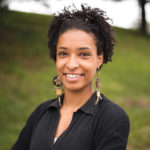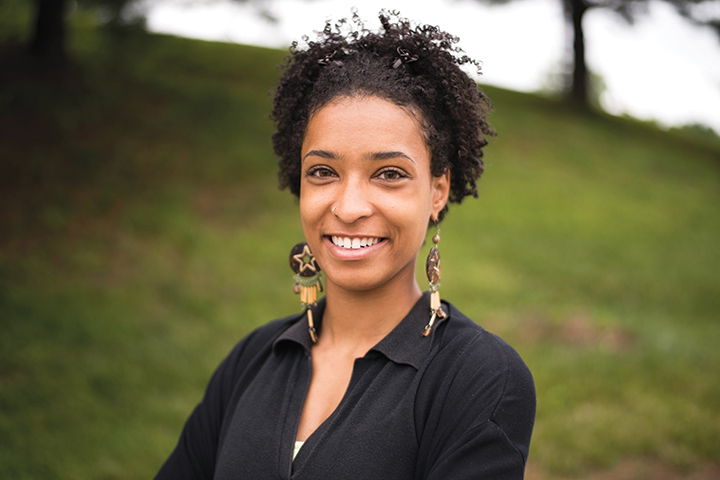
History can be a blessing or a burden. One’s place in the annals of time—intentional or incidental—can be a point of pride or a reason to retreat. For Jessie Reasor Zander ’54, sometimes, it’s both.
“Whenever I visit Berea,” she explained in a phone call last June, “the introductory statement is, ‘This is Jessie Reasor Zander; she is the first African American to graduate after the Day Law was rescinded.’ That repetition—over and over in the course of a day—was nice, but exhausting and somehow embarrassing.”
To distance herself from that repetition while still embracing her role as “the first,” Zander retired to Tucson, Ariz., in 1992, rather than to her beloved Berea.
I spent a weekend with the retired school principal and poet and learned there is more to this youthful octogenarian than her watershed moment at Berea College 64 years ago.
When I arrived at her home, Zander gathered me in a warm embrace. “Come,” she said, holding my hand. “I’m looking forward to our time together.”
As she led me around her home, I observed how spry her gait was for a woman in her 80s. She showed me to my room for the next few days. Her late husband, Johnny, had slept there. Photos of him covered the top of the dresser. The two had been married for 35 years, and planned to travel the world together in retirement. Zander retired in 1989; Johnny was to retire soon after.
“It didn’t work out the way we thought,” she said, explaining that Johnny passed away on his next-to-last day of work in 1989. “It was catastrophic.”
Between 1989 and 1992 Jessie was invited back to Berea—first, to work with Kathryn Akural and student-teachers in education studies, and later with the Carter G. Woodson Center, where she joined Dr. Joyce Bickerstaff and William Turner to work with African-American high school students.
“Those experiences,” she reminisced, “in this special, communal atmosphere were just the therapy I needed to come to terms with his passing.”
Thankful for the free therapy Berea provided, Zander returned to Arizona, where she leads/has been active with the Arizona-Berea alumni group for 20 years.
Before long we were in the kitchen, where she presented me with a menu of the down-home food she had prepared just for our visit. Both surprised and touched that she went to such lengths to be an accommodating, generous host, I looked it over: salmon patties, pinto beans, rice, chicken and fruit were some meals that stood out. I explained that I was a vegan.
“Not another vegan!” she laughed infectiously. “My godchild’s daughter, Christine, is a vegan; I’m a southern cook. I guess you can’t eat most of this.”
We worked side-by-side in her small kitchen, each preparing our meals and snacks, laughing and talking.
The next day we awoke early. In the living room, I scanned her books, all well-known African-American authors. We bonded over Maya Angelou, one of my favorites, and we connected in other ways, too, mainly in regard to our shared experiences as African-American women.
We got down to the business of why I was there: to catalog in some way the musings of this beloved Berean. Her responses revealed all that I have to be grateful for in this day and age. As I listened, I thought about how fortunate I am to have never once had a professional opportunity denied me because of my skin color, and how interesting it is that not one of my classes at Berea had ever enrolled only fellow black students.
We sat at the kitchen table, a laptop between us and a tape recorder beside it. I looked at her with keen interest as she shared her wisdom.
“Having money,” she said, “doesn’t give progress to the world. Interacting with each other and sharing do, but we’re still stuck on what we can do to make the most money. That needs to be recognized at the highest level to encourage community acceptance and assist people in interacting and sharing.”
She walked me to a room filled with boxes containing memorabilia she wanted to donate to Berea’s archives. We poured over various awards and recognitions—the Alpha Kappa Alpha Educational Advancement Foundation scholarship in her name, the University of Arizona Black Alumni Women’s Award presented by the YWCA, her dedication speech at Knapp Hall and other Berea recognitions. She pulled out a stack of cards, sharing how she saves the ones she receives from Berea.
“This one’s from Lyle and Laurie (Roelofs),” she noted. They are so precious to me. At Christmas and birthdays, I get a slew of them from Berea.”
Zander, a poet, shuffled through some old poems and read one aloud. Titled, “Unifying Symbol,” and published in the July 1975 edition of the “Appalachian Independent,” the poem speaks to the need for our cultural exchanges to promote better understanding of one another’s unique backgrounds and differences.
I’d like to join you./In a trip toward healing, toward harmony and wholeness. …Say the word and I’ll join you/In a walk toward exchange/Toward a new consciousness and understanding.
She is putting together a book of her poems to share with loved ones, and although I complimented her, she remained humble. She focused mainly on her numerous service awards. Each award brought with it a story. Later over lunch at a place called Sweet Tomatoes, Zander shared more stories about her travels to South Africa, Russia, Australia, New Zealand, Mexico, Germany and more.
Our visit carried with it the power of belief in the face of seemingly insurmountable odds. Buoyed by her grandmother’s faith, Zander also earned two master’s degrees. Her life is a testament to the fact that we are each powerful beyond measure. Only by moving forward and allowing ourselves to be seen, to really show up, can we move in the direction of a future that is inclusive of folks of all different backgrounds, in every area.


